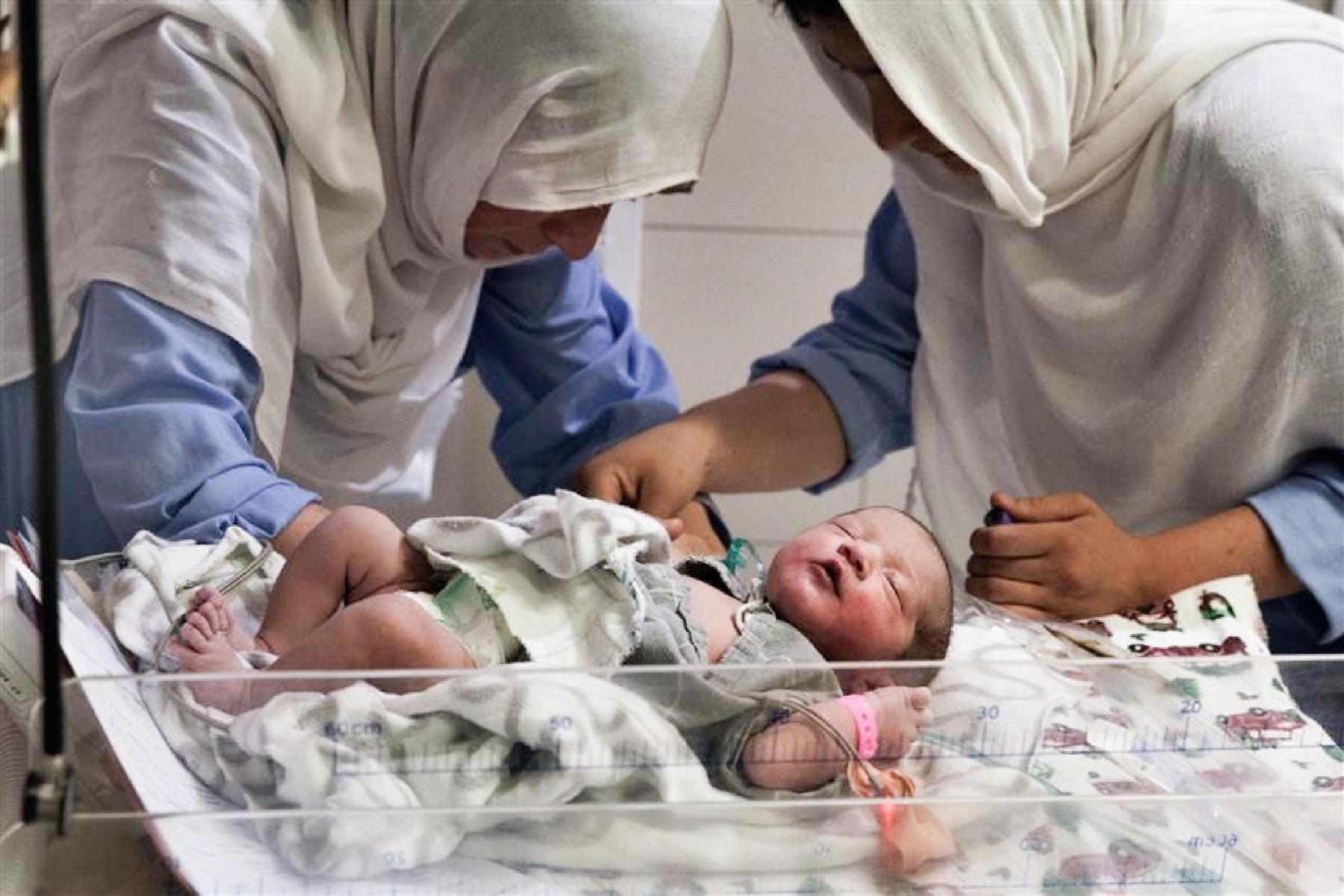
English below
"Come se non bastassero i già terribili pericoli della guerra, chi vive in questi luoghi deve anche fare i conti con la mancanza continua di beni essenziali, che per le donne in gravidanza significa gravi rischi per la loro salute e quella dei loro figli. Noi facciamo di tutto per garantire loro cure adeguate, anche distribuendo integratori alimentari e monitorando le gravidanze a rischio."
Eleonora Bruni
Responsabile delle attività ostetriche di EMERGENCY
Le donne nei Paesi devastati dai conflitti sono vittime due volte: la guerra non le colpisce solo come civili, ma anche come madri, privandole di quelle che dovrebbero essere le cure più semplici, una visita prenatale, la giusta assistenza, un parto sicuro.
Le nostre ostetriche si prendono cura delle donne incinte nei contesti più difficili, come l’Afghanistan, Gaza e il Sudan fornendo cure gratuite alle future madri e ai loro neonati, che più di tutti soffrono le conseguenze della guerra.
Come se non bastassero i già terribili pericoli della guerra infatti, chi vive in questi luoghi deve anche fare i conti con la mancanza continua di beni essenziali, che per le donne in gravidanza significa gravi rischi per la loro salute e quelle dei loro figli. Sul campo il nostro personale incontra sempre più spesso gestanti così malnutrite che anche un’emorragia lieve può ucciderle. Bambini che alla nascita pesano poco più di un chilo, con danni allo sviluppo neurologico e fisico che dureranno per sempre perché le loro madri non hanno mangiato per mesi.
Per questo EMERGENCY ha deciso in questi anni di attivare nei contesti di guerra in cui è presente attività specifiche per la salute materno infantile.
A Gaza, offriamo cure pre e post-natali nella nostra clinica di Al-Qarara, assistendo donne che vivono in tende senza acqua né farmaci. Garantiamo visite ostetriche, farmaci essenziali e supporto per parti sicuri in un sistema sanitario al collasso, dove migliaia di donne incinte lottano per sopravvivere tra bombe e carestie.
Qui oltre a patire la fame, le donne incinte passano 9 mesi in tende sovraffollate senza servizi sanitari. Le nostre ostetriche sul campo ci raccontano costantemente i rischi nel portare avanti una gravidanza in un contesto così: infezioni alle vie urinarie, alto rischio di complicazioni, donne con diabete gestazionale che non possono reperire l’insulina né tantomeno conservarla perché manca l’elettricità.
In Sudan dove la guerra in corso ha distrutto o reso inagibili la maggior parte degli ospedali, tra cui quelli di ostetricia, con il nostro Centro pediatrico di Port Sudan assicuriamo farmaci, monitoraggio gravidanze e assistenza ostetrica in un sistema sanitario devastato dal conflitto dove le madri rischiano la vita senza accesso alle cure.
Molte famiglie sfollate a causa della guerra hanno trovato rifugi improvvisati nell'area di Port Sudan dove presso il nostro Centro pediatrico garantiamo ogni giorno visite e cure a madri e future madri. Inoltre, con il nostro team di ostetriche, accompagnate da un’infermiera e un’operatrice sanitaria di comunità, facciamo anche visite a domicilio, per monitorare le gravidanze, controllare i parametri vitali, consegnare i farmaci per le terapie.
In Afghanistan, presso il nostro centro di maternità di Anabah garantiamo parti sicuri, cure neonatali e visite alle donne incinte, contrastando malnutrizione e complicanze sempre maggiori.
Nel paese infatti, anche se la guerra è finita, le sue conseguenze restano e la situazione non fa che peggiorare: ciò si riflette nello stato sempre più precario delle donne che arrivano al nostro Centro di maternità dove continuiamo a prenderci cura sempre più di gravidanze a rischio.
Aiutaci con una donazione a realizzare queste importanti attività umanitarie: ci aiuterai a garantire aiuti vitali come visite pre e post-natali, parti sicuri, farmaci per le neo-madri e i loro bambini.
Insieme a te continueremo ad essere con loro, ogni giorno, a difendere il loro diritto a diventare madri in sicurezza. La speranza rinasce anche grazie al tuo sostegno.
---
“As if the terrible dangers of war were not enough, those who live in these places also have to contend with a constant lack of essential goods, which for pregnant women means serious risks to their health and the health of their children. We do everything we can to ensure they receive the necessary care, including distributing food supplements and monitoring high-risk pregnancies.”
Eleonora Bruni
Head of Obstetric Activities at EMERGENCY
Women in conflict-affected countries are victims twice over: war affects them not only as civilians, but also as mothers, depriving them of what should be the most basic care: a prenatal visit, proper assistance and a safe delivery.
Our midwives care for pregnant women in the most difficult contexts, such as Afghanistan, Gaza and Sudan, providing free care to expectant mothers and their newborns, who suffer the most from the consequences of war.
As if the already terrible dangers of war were not enough, people must also contend with a constant lack of essential goods, which for pregnant women means serious risks to their health and the health of their children. In the field, EMERGENCY’s staff increasingly encounter pregnant women who are so malnourished that even a slight haemorrhage could kill them. Some babies weigh just over a kilo at birth, with permanent damage to their neurological and physical development because their mothers have not eaten for months.
This is why EMERGENCY has activated specific maternal and child health services in the war contexts where it operates.
In Gaza, we offer ante- and post-natal care at our clinic in Al-Qarara, assisting women who live in tents without water or medicine. We provide obstetric care, essential medications and support for safe deliveries in a collapsing healthcare system, where thousands of pregnant women are struggling to survive amidst bombs and famine.
In addition to suffering from hunger, pregnant women spend nine months living in overcrowded tents without sanitary facilities. Our midwives in the field constantly tell us about the risks of carrying a pregnancy to term in such a context: urinary tract infections, high risk of complications, women with gestational diabetes who cannot find insulin, let alone store it, because there is no electricity.
In Sudan, where the ongoing war has destroyed or rendered most hospitals unusable, including maternity wards, our Paediatric Centre in Port Sudan provides medicines, pregnancy monitoring and obstetric care in a healthcare system devastated by conflict, where mothers risk their lives without access to treatment.
Many families displaced by the war have found makeshift shelters in the Port Sudan area, where our Paediatric Centre provides daily check-ups and care for mothers and expectant mothers. With our team of midwives, accompanied by a nurse and a community health worker, we also conduct home visits to monitor pregnancies, check vital signs and deliver medications.
In Afghanistan, at our Maternity Centre in Anabah, we provide safe deliveries, neonatal care and check-ups for pregnant women, combating malnutrition and rising rates of complications.
Although war has formally concluded, its consequences remain and the situation is worsening. This is reflected in the increasingly vulnerable conditions of the women who arrive at our Maternity Centre, where we continue to care for more and more high-risk pregnancies.
Support us with a donation to carry out these important humanitarian activities: you will help us provide vital aid such as ante- and post-natal check-ups, safe deliveries and medicines for new mothers and their babies.
Together with you, we will remain at their side, every day, defending their right to become mothers in safety. Hope is reborn thanks to your support.
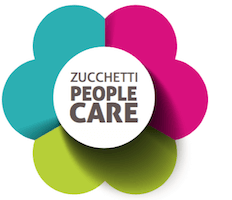
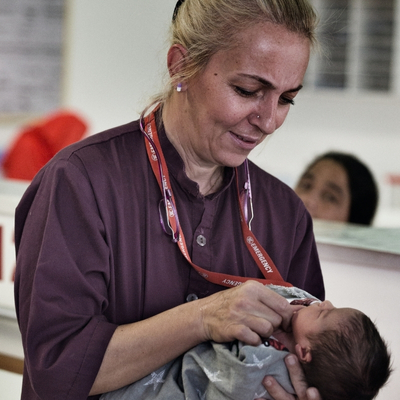
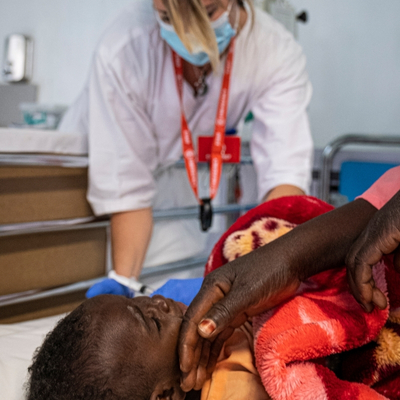
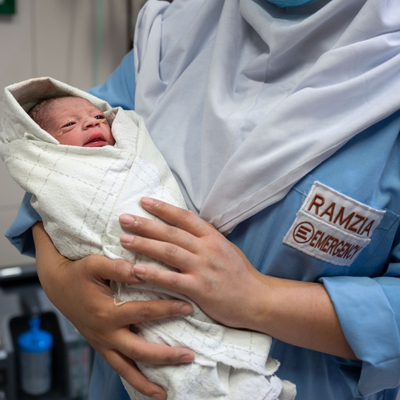
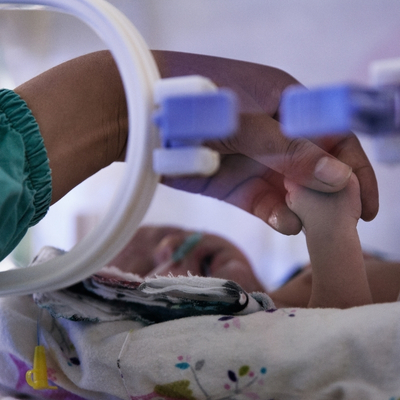

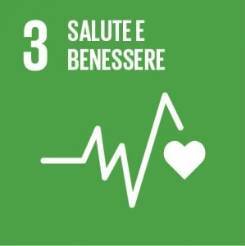
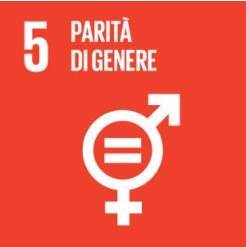
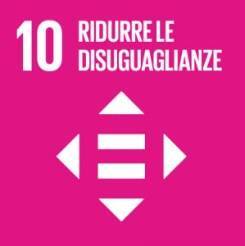
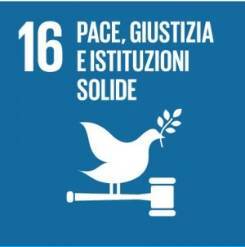
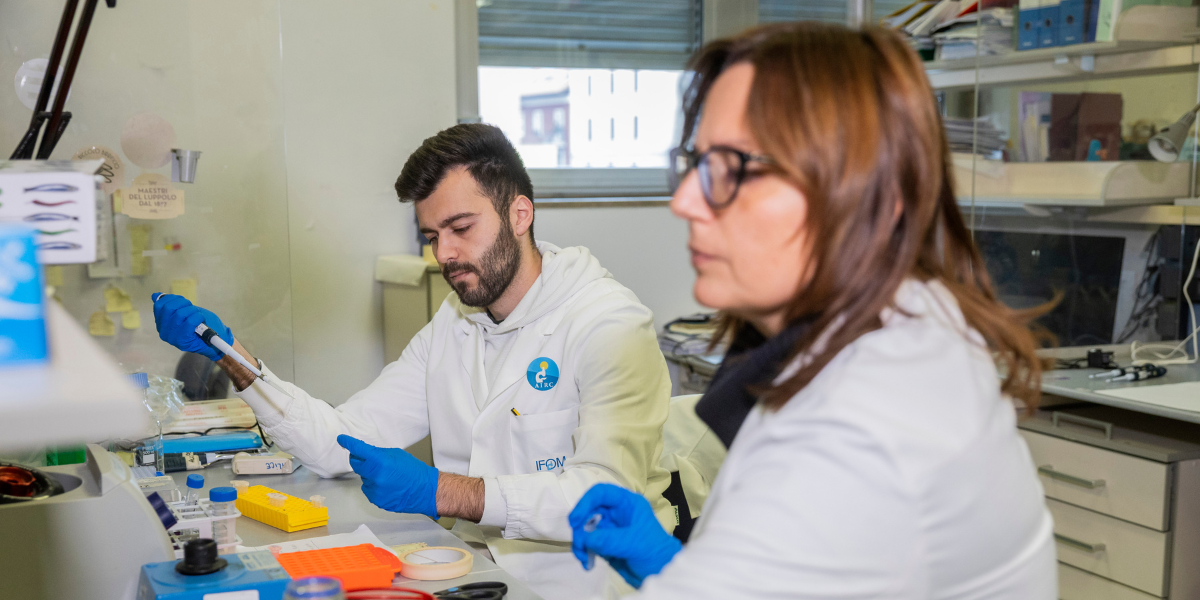
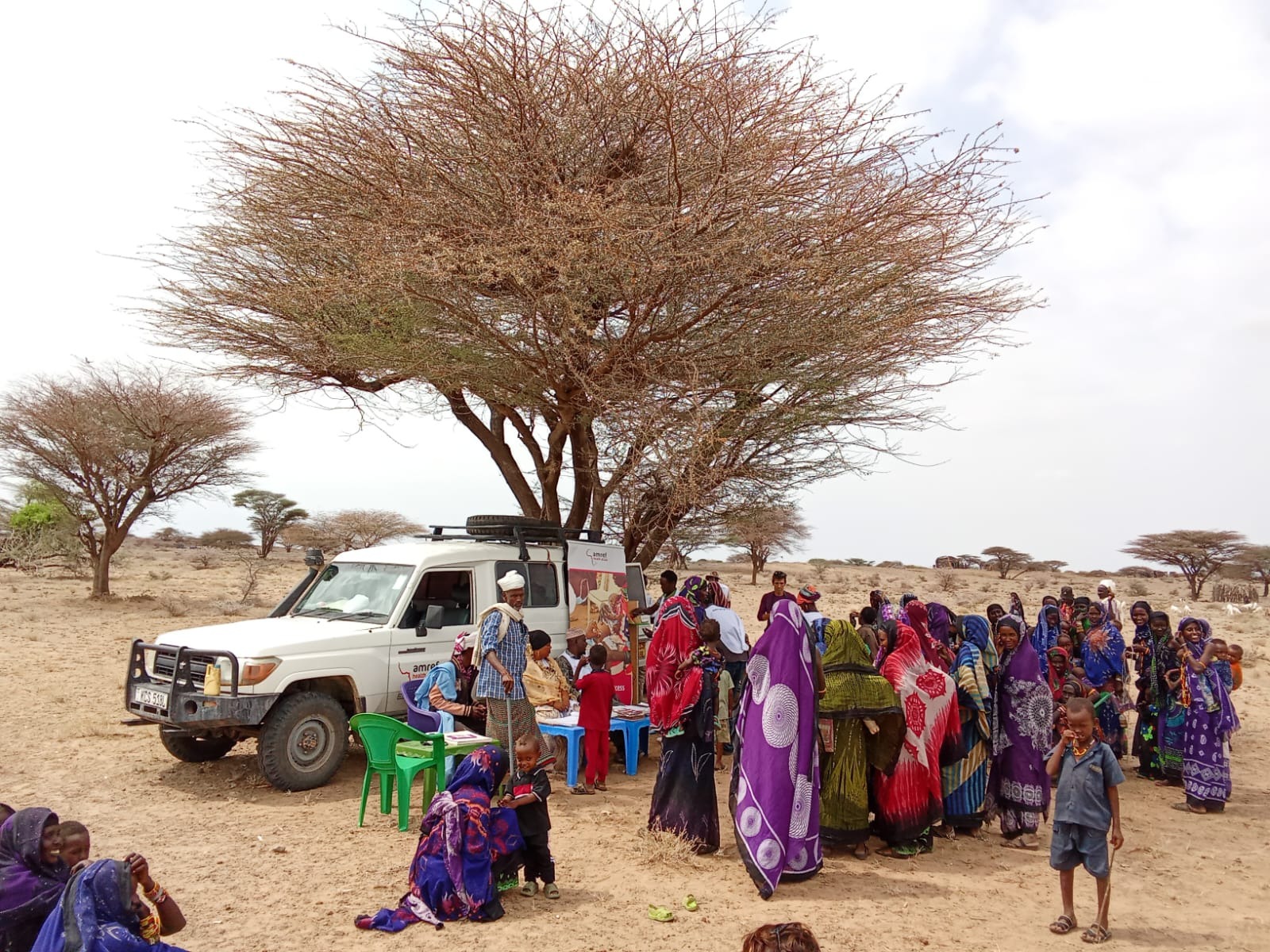
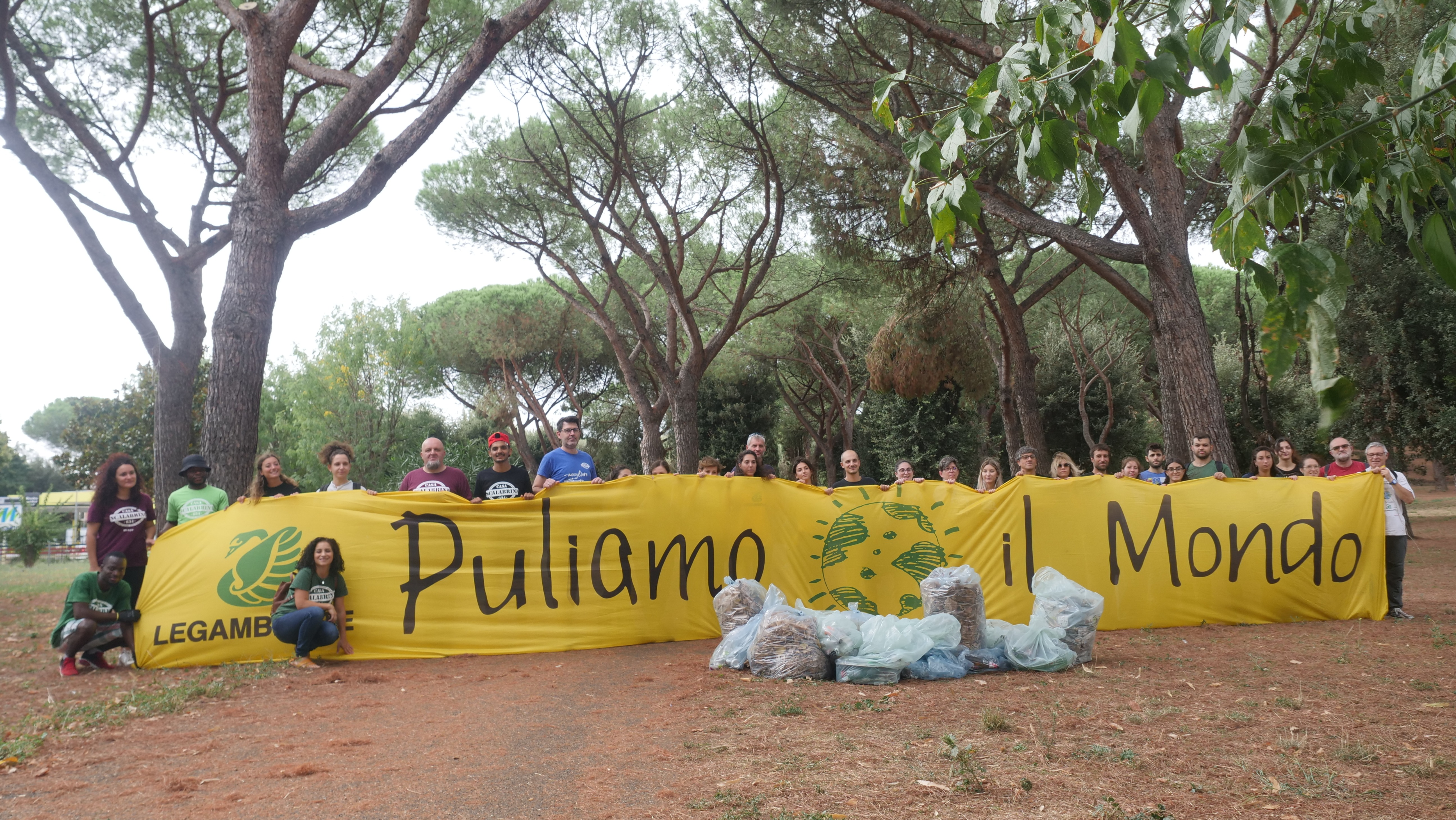
Insieme per garantire cure materno-infantili in contesti di guerra. - Working together to guarantee maternal and infant care in conflict settings.